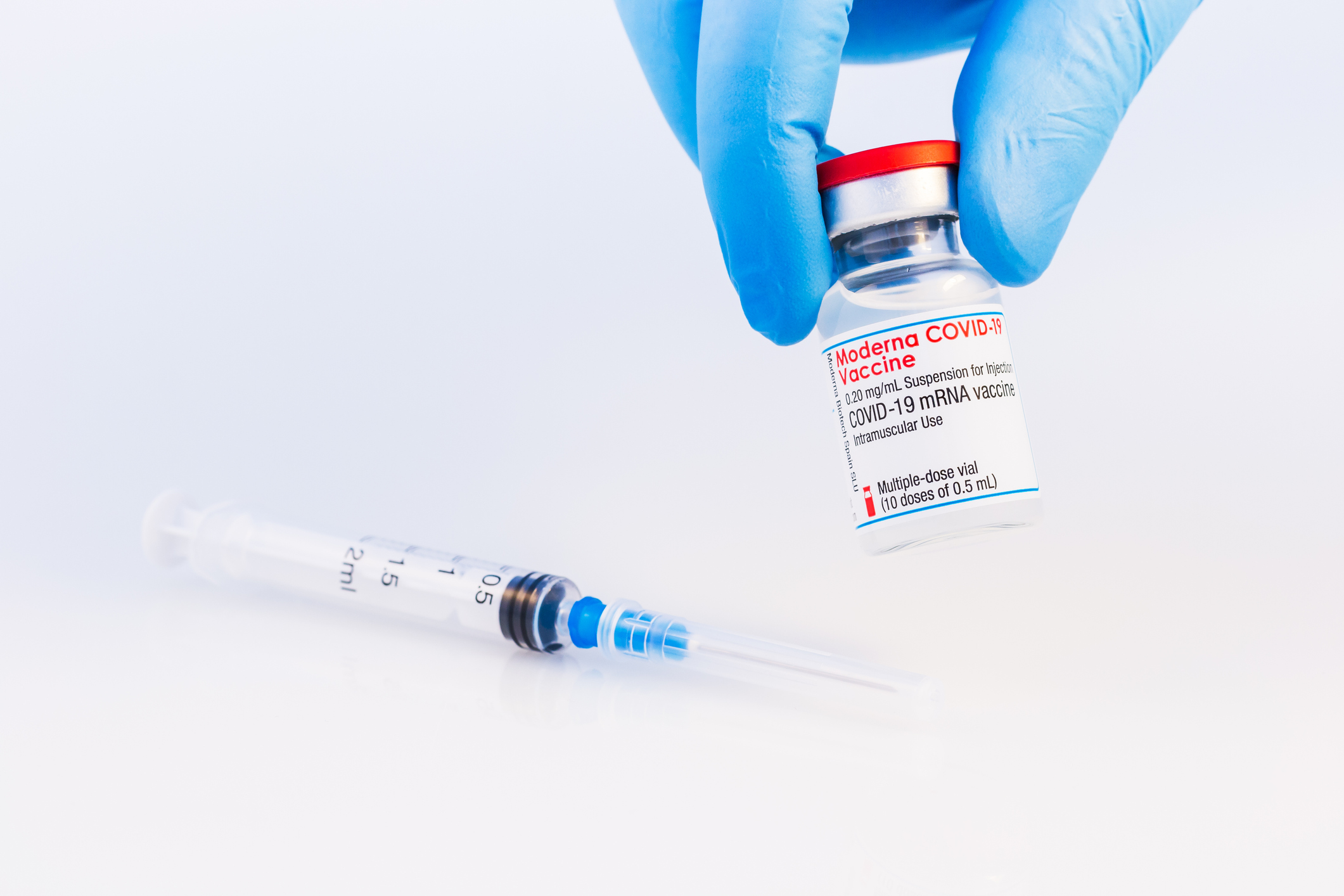
Public-health experts have long warned that a new vaccine against the SARS-CoV-2 virus might be needed—especially now that the Omicron variant and its many subvariants are causing the vast majority of new COVID-19 cases around the world.
There may soon be one. Moderna, which makes one of the three COVID-19 vaccines authorized by the U.S. Food and Drug Administration (FDA), announced results from its study of a new vaccine the company’s scientists developed that targets both the original virus strain as well as Omicron. Combining the two strains in a booster dose produced an average of eight times the levels of virus-neutralizing antibodies targeted against both Omicron and the original virus in vaccinated people, compared to those boosted with the original vaccine, the company reported in a press release.
Scientists have said that the original two-dose shot and its booster doses continue to significantly protect people from severe disease and hospitalization, even against the different variants that have emerged since the shots were developed. But the levels of antibodies that vaccinated people generate against Omicron are generally lower than those produced against the original virus. In response, vaccine manufacturers including Moderna have developed combination, or bivalent, vaccines to enhance protection against Omicron. The company’s study shows that targeting both the original and Omicron strains leads to a stronger immune response.
“We believe the data unequivocally show that the bivalent vaccine is significantly superior in producing neutralizing protection,” Moderna president Dr. Stephen Hoge said during a conference call announcing the results. “To more accurately reflect the circulating strain [of the virus], the data clearly show that it’s time to update the vaccine to improve the durability and magnitude of protection for the coming fall.”
Read More: Here’s What to Know About COVID-19 Booster Shots for Kids
Whether the original vaccine needs to be changed to one such as the Omicron-targeting shot will be up to the FDA to decide. Over the next few weeks, Moderna plans to submit its latest data to the agency in order to seek authorization for its bivalent vaccine as a booster dose, which might be recommended for people in the fall. This is the company’s second combination vaccine; earlier this spring, Moderna scientists released similarly encouraging data showing that a vaccine targeting both the original strain of SARS-CoV-2 and the Beta variant generated higher amounts of virus-neutralizing antibodies against a number of different virus strains, including the original, Beta, and Omicron variants.
Hoge noted, however, that the data only extend to one month after the booster dose, so the company is continuing to follow the study participants to track how durable that protection is. “The real goal is to get to six or nine months of protection, which gets you through the respiratory season,” he says of the fall and winter, when viruses like influenza and coronaviruses tend to circulate more as people spend more time indoors. Currently, protection from the original Moderna booster wanes after about four to five months, which is why health officials recommend that everyone who has been vaccinated receive at least one booster dose four to five months after completing the primary two-dose regimen, and that some people at higher risk get boosted yet again with an additional dose.
The combination booster has not yet been tested in children, but Hoge said those studies will now begin, given the reassuring safety and efficacy data from the booster in adults. The FDA has not yet reviewed Moderna’s application for authorizing its original vaccine in children; the agency’s advisory committee will be meeting on June 14 and 15 to review Moderna’s data for pediatric COVID-19 vaccines to make a recommendation. The same committee will meet on June 28 to discuss whether new formulations of COVID-19 vaccines, such as Moderna’s Omicron combination booster, should be recommended as a booster dose for adults in the fall, and whether the combination vaccine should replace the original vaccine for those who haven’t been vaccinated yet.
More Must-Reads from TIME
- Breaking Down the 2024 Election Calendar
- How Nayib Bukele’s ‘Iron Fist’ Has Transformed El Salvador
- What if Ultra-Processed Foods Aren’t as Bad as You Think?
- How Ukraine Beat Russia in the Battle of the Black Sea
- Long COVID Looks Different in Kids
- How Project 2025 Would Jeopardize Americans’ Health
- What a $129 Frying Pan Says About America’s Eating Habits
- The 32 Most Anticipated Books of Fall 2024
Contact us at letters@time.com